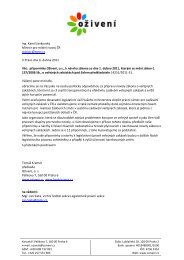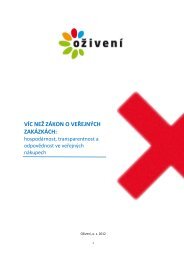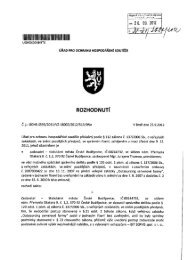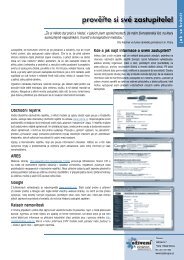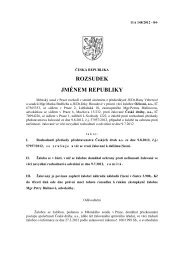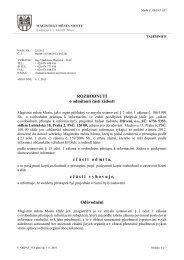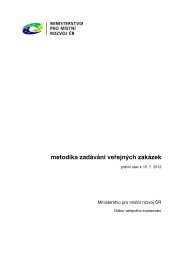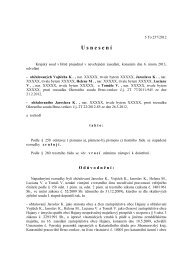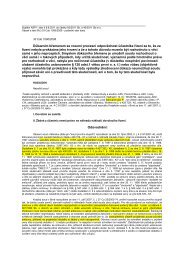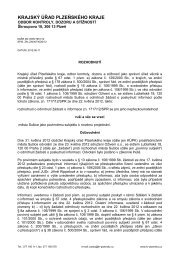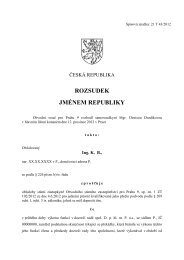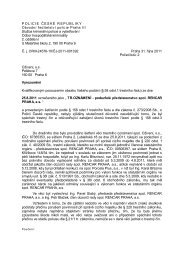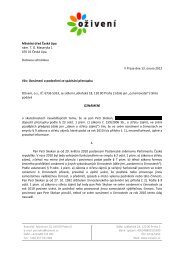Managing Conflict of Interest - Organisation for Economic Co ...
Managing Conflict of Interest - Organisation for Economic Co ...
Managing Conflict of Interest - Organisation for Economic Co ...
Create successful ePaper yourself
Turn your PDF publications into a flip-book with our unique Google optimized e-Paper software.
xiv <strong>Managing</strong> <strong><strong>Co</strong>nflict</strong> <strong>of</strong> <strong>Interest</strong>public <strong>of</strong>fice holders have been strengthened to improve guidanceon expected behavior.In 2002 the Republic <strong>of</strong> Korea established an Independent <strong>Co</strong>mmissionAgainst <strong>Co</strong>rruption (KICAC) to implement new policy measuresto manage COI, including a new code <strong>of</strong> conduct <strong>for</strong> public<strong>of</strong>ficials, revised asset registration and disclosure requirements,restrictions on post-employment <strong>of</strong> retired public <strong>of</strong>ficials, and a blindtrust system. KICAC has also partnered with the police <strong>for</strong>ce andthe Board <strong>of</strong> Audit Inspection to increase transparency and accountabilityoverall, make institutional improvements in corruption-proneareas, improve the management <strong>of</strong> the public sector, and establish amore centralized approach to protecting whistle-blowers.The Philippines and Indonesia have also made re<strong>for</strong>ms buthave encountered difficulty in meeting new standards <strong>of</strong> bestpractice in combating corruption. Practitioners in those countrieshighlight the challenges <strong>of</strong> managing COI including: (i) the lack <strong>of</strong>political will; (ii) limited alignment among the political leadership,government agencies, state institutions, and other relevant organizationson COI principles and practices; and (iii) limited awarenessamong public service employees and the general public <strong>of</strong> whatconstitutes COI.Both countries are addressing these challenges. The Philippineshas established a tracking and monitoring system to betteraddress complaints filed through the asset disclosure and declarationsystem. Indonesia has established the <strong>Co</strong>rruption Eradication<strong>Co</strong>mmission (KPK) to prevent and control corruption, through themonitoring <strong>of</strong> public <strong>of</strong>ficials’ wealth and other means.<strong>Managing</strong> <strong><strong>Co</strong>nflict</strong> <strong>of</strong> <strong>Interest</strong>: Prevention and En<strong>for</strong>cement ToolsPrevailing social, cultural, political, and economic norms affectthe extent to which conflicts—apparent, potential, or real—aredealt with. But while country context may dictate unique perceptions,conditions, and determinants <strong>of</strong> COI, the challenge to manageCOI is universal.Prevention and en<strong>for</strong>cement are equally important aspects<strong>of</strong> promoting good governance and reducing vulnerability tocorruption. Universal codes <strong>of</strong> conduct, asset and interest disclosureregimes, and public education and awareness campaigns shouldbe accompanied by sanctions and en<strong>for</strong>cement mechanisms.ADB/OECD Anti-<strong>Co</strong>rruption Initiative <strong>for</strong> Asia and the Pacific



